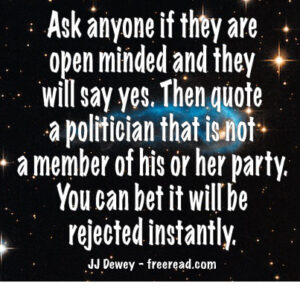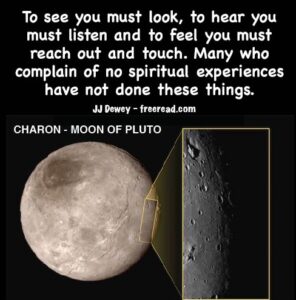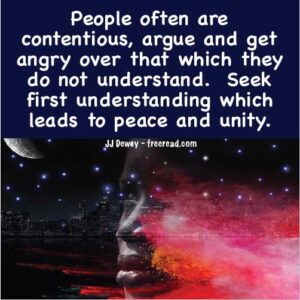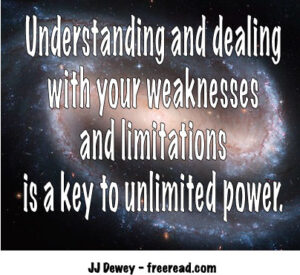
Gathering 2004, Part 13
Political Unification, Part 1
The last time we were in Manti we presented the Principles of Unification. Hopefully most of you have endorsed them. Something else needs unified. Does anybody know what it is? We worked on the Principles of Unification for religions. We presented points on which almost every religion believes the same way. We presented beliefs that the Muslims believe like the Christians and the Buddhists believe like the Muslims and if most believe the same on these certain points, they can see that there is more bringing them together than taking them apart. There isn’t too much they disagree on, but lot of people don’t want to be unified that much.
Something even more divisive than religion right now, is politics. Presently, in this country we’re having a civil war on the astral plane. It’s unlike anything since the Civil War in the days of Abraham Lincoln. If you read about the thoughts just before the Civil War it’s a lot like it is today. The Democrats and Republicans really hated each other.
Unfortunately, the way this was resolved was through the Civil War and the splitting up of the nation. We’ve got a splitting up of the nation now. Not right in two but they’re talking about the red states and the blue states so we’re kind of split up in that way. The Democrats hate the Republicans and the Republicans hate the Democrats. Liberals hate Conservatives and Conservatives hate Liberals.
We’re reaching a fairly dangerous point. It’s good to have a certain amount of disagreement with argument and dialog and reaching resolution. This is how it should be. But we’re reaching a very strong dichotomy in our country that needs to be corrected to a degree.
So what I’ve written is called the Principles of Unification. There are twenty principles that both parties should agree upon 100%. I’m going to pass these out to everybody.
After all those OMs I almost feel too spiritual to talk about politics. When we talk about politics, we usually want to feel angry. (laughter)
Audience: This says Principles of Political Unification. Isn’t that an oxymoron?
JJ: Pretty close. Unfortunately, it’s not just this country. It seems to be a worldwide thing. Wherever you go, in whichever country, there is a big dichotomy in political thought and a lot of hatred involved. It’s probably strongest in the United States than anywhere because we have a lot of freedom of thought here so every view is presented, probably more than anywhere. So there is a lot of dialog going on. It’s to the point that they don’t agree with things the person they’re opposing says even if they believe it. Both sides are getting that close-minded. If Bush or Clinton or someone gets up and says, “I believe in prosperity” the other side will say, “I disagree with that.” No matter what is said, they’ll disagree with it. People are developing the mindset that the other side is evil and needs to be destroyed.
What we need is a little more unification, judgment, common sense, brotherhood and respect. So here are the principles. We’ll read through them and talk about them. I’m sure we probably have people on both sides of the political spectrum in this room. It might be close to 50-50 so the group is a good testing ground. What we want is for everyone to comment on whether you agree on these principles from your point of view, politically. We’ll try to avoid discussion on which party is the best, Republican or Democrat. Here is number one.
- I will seek that which is good for my country above that which is good for my party.
Do you think both parties should do that? I know there are also a few Libertarians and minority parties should hopefully agree with that. Nobody disagrees? Good.
Audience: comment inaudible.
JJ: For most people they can see what’s good but you’re right. Everybody has a different definition of good. Sometimes in politics it doesn’t matter. Even if they recognize the good, they will negate it for the good of their party, I mean blatantly disregard it.
Audience: I’d like to comment that there are two extremes on this particular point. Not everyone will agree with it. It’s like in Sunday school the answer to every question is, “What would Jesus do?” That depends on whether you’re talking to a fundamentalist Christian. People interpret Jesus into their own best liking so it’s a good point that which is good for my party or which is good for my country but what you mean by good opens a whole can of worms because of that principle. If there is a way that we could maybe rephrase the word ‘good’ to ‘what is in course with my conscience’ because now we’re going to a standard.
JJ: It’s not perfect but what we want to do is to establish a certain mindset that the good of the many is better than the good of the few.
Audience: From my understanding you aren’t setting an absolute standard of good. You’re saying if I’m a person and I look out here and I think from my point of view this is good for the party or this is good for everyone. It’s not an absolute standard of good. If you think something is good you follow then you follow the examples.
JJ: Let’s go with an obvious example of good, like balancing the budget. Most everyone agrees that the budget should be balanced and we shouldn’t live on borrowed money that our grandkids will have to pay off. But let’s suppose your party wants to spend a lot of borrowed money for political purposes on the sex life of the housefly because a bunch of people in your party are going to be benefited. The balanced budget is the better option because you’d need to unbalance the budget to do this research. So, the person really knows he’s not following the good of the whole when he benefits a handful of his constituencies with research on the sex life of the fly. He knows that, but a lot of them do it anyway.
A lot of things won’t be covered by this. There are certain things when you meet a crossroads sometimes where these guys know they’re not doing what’s good for the whole but they want to benefit the few rather than the many.
Audience: With the good of the group, if you think about concentric circles, there’s going to be some overlap or places where you agree it’s good and others agree it’s good. Wherever these segments of the circle overlap that might be good for the group but whatever it is for the country it encompasses more harmony and more unity than just for some group or party.
JJ: Then there are other cases where one side will think something is good but the other side will say this principle won’t resolve that, but it will resolve some things if they commit themselves to follow their conscience and the good that they recognize.
Audience: What you’re establishing with this first point is you’re saying, “Look, you can’t assume that what’s good for your party is automatically good for the country. It puts them in the other person’s shoes and says, “Think about where they’re coming from and let’s look at the whole picture here rather than just from your own moccasins.” That’s what this first principle establishes and I think that’s a good first principle.
Audience: I’m not sure I understand why we’re not expanding that to, “I see what is good for my planet, Earth.” Why are limiting it to my country? Why aren’t we looking at a bigger picture?
JJ: Because most people don’t think globally. If you’re talking about metaphysical people that would be good but when you’re talking about the political animals out there they’d see it as a bunch of new age mumbo jumbo. For people like us that would be good.
Audience: I’d think you’d want to establish unity and harmony within your own country first before you can unite the whole world.
JJ: You’re right. It needs to be but what needs to be and what can be done are often two different things.
Audience: We don’t have high enough aspirations. Why are we limiting ourselves?
Audience: Look at this as a first step. This is a movement in that direction.
JJ: We’re looking at something which will hopefully permeate down into the born-again Christians, the atheist, the capitalist, the business man and all these people who really aren’t into metaphysics. They can understand the word ‘good’.
Audience: It seems to me, like you said in the beginning, we have this separation going on. “I’m Republican. I’m Democrat.” We’ve become so segregated party-wise that this first statement says, “Wait a second. We’ve got common ground which is the country.” It takes the people who are segregated to their party and it actually divides them from their party and puts them back into their country, where we were originally. So, I believe this sentence and this statement does exactly what you’re trying to make it do, separating them from their differences and unifying them with their common ground.
JJ: Good point. It reminds me of Kennedy’s words, “Ask not what your country can do for you but what you can do for your country.” That goes along a bit with this first principle.
Audience: I think we could reword it to say ‘my country and the world’ instead of limiting it to my country.
JJ: That sounds good. What do you guys think?
Audience: It helps to see it through a universal perspective because one group of people or one country can set an example for the world.
JJ: Yet either way would work I think. Many of the people who will like something like this will be the more metaphysical people anyway. But hopefully we can eventually, and it may take years or decades, but eventually something like this can permeate down into ordinary consciousness so we can negate some of this hate and division we have among us. Let’s go to number 2.
- I support the principle of free speech. All people must be allowed to express their political and spiritual views however repulsive without legal restrictions.
JJ: Do you think most parties would support that?
Audience: chatter
JJ: Well, the far left want to control us with politically correct speech. They don’t want us to say anything that’s not correct. The far right wants to censor us. Some of the far right censoring some things wouldn’t be too bad, like child pornography and things like that. There is a limit of things.
Audience: It seems that there is a barrier between what I believe and somebody else believes something else so I’d rather say what I believe than letting them say what they believe. I think that barrier may be broken down by acknowledging that I enjoy and appreciate and need my freedom of speech, therefore I am willing to allow others the freedom of speech. Perhaps something could be added at the beginning to break down that immediate barrier. If I enjoy free speech they must enjoy it too and it could all be one side of the thing.
JJ: Ok. The main danger of limiting freedom of speech comes from the government. We, as individuals, if we don’t want to support someone’s speech we have the perfect right to do this. A lot of times when individuals or businesses don’t support or finance someone’s speech they claim it’s lack of freedom. Freedom must reign everywhere. This must especially apply to the government so the government doesn’t step in and limit anybody’s free expression, especially, notice how this is worded, ‘All people must be allowed to express their political and spiritual views.’ Things like child pornography don’t enter into that. That could be somewhere where the government actually should step in to limit things that could be harmful to children, for instance
That would be a good example. To have their freedom of expression with that type of thing they have to take away the freedom of a child.
No matter how repulsive, if a Nazi or communist wants to have a parade or whatever or speak or buy time and someone is willing to sell it to them it’s ok. On the other hand, if a Nazi wants to buy space in a newspaper and the newspaper refuses to sell it to him, are they violating his free speech? No, because they have the right to sell or not sell. That’s not a violation.
Audience: ‘All people must be allowed’ what if we changed the ‘must’ to ‘may be allowed. It sounds like would, should, could or whatever might be better.
JJ: I like the word ‘should’.
Audience: “I should be allowed to express my political and spiritual views without restrictions and allow all people the same privilege.”
JJ: That sounds good.
Audience: However repulsive-doesn’t that sound rather judgmental?
JJ: Well, we are judgmental. That’s the reality. People are judgmental. That’s why they don’t’ want the other guy to have free speech, because it repulses them. You need to start where you are. To climb a ladder you need to start with the first step. I know we want to be on the top step but we need to start with the first step.
Audience: Susan is speaking in first person. “Are we signing this or are our politicians?”
JJ: We’ll play it by ear depending on the response we get.
Audience: I’d say the word ‘should’ could be removed and replaced with ‘may’. It’s a much better choice.
JJ: I prefer should. Let’s change it to all people should be allowed.
Audience: What about I? I support the principles, I should be allowed.
JJ: Not just you should be allowed, all people should be allowed.
Audience: If you look at the Constitution, the word ‘should’ is not anywhere within it. They chose not to use that word for a reason. They use ‘shall’.
JJ: What was your wording? Read it again.
Audience: Shall we vote on shall or should? (chatter) Okay, let’s try shall. I shall be allowed to express my political and spiritual views, however repulsive, without legal restriction, and allow all people the same privilege.
JJ: That sounds okay.
Audience: I’m just wondering, by changing that wording in that sentence, it would need to be parallel throughout the entire document. If you make a decision to put this principle in first person then the rest will need to be the same.
JJ: That’s a good point.
Audience: On number two I think there is a principle that needs to be taken into account. The freedom of someone to turn it off and walk away if somebody is imposing his free speech on someone else that itself it a form of freedom.
JJ: That’s a good point because a lot of people equate free speech with the freedom to be heard. In other words, for me to have free speech you need to sit there and listen to me. That’s not what free speech is.
Audience: One of the primary offenders is the pornographic group. They’re abusing my email box and bombarding me.
JJ: Right and there is no way to cancel anything. It’s definitely an abuse and it’s not free speech. Free speech entitles freedom to not hear the speech also. Let’s take Whoopi Goldberg saying these things about Bush. Her sponsor dropped her then she complained that they were trying to take away her free speech. Her sponsor has a perfect right to say, “Hey I’m not going to pay you to speak that way.” He has a right to do that. Free speech isn’t forcing someone to pay you to speak. Free speech as we are discussing it means the government can’t step in and tell you that you cannot speak. Saddam Hussein used to do that. If you said anything negative about him you’d be dragged off to the torture chamber.
Audience: People need to perceive the difference between political lines and property lines. A political line gives you the right to say something but a property right says we can turn the radio off etc.
JJ: Let’s pick the most despicable people we know about, the Neo-Nazis perhaps. They have free speech but that does not mean the newspapers have to publish them. It doesn’t mean a radio station has to sell them an ad. Even if no one will support them, they can still go on a street corner and say what they choose.
Audience: We have the right to walk away from bad behavior too.
Audience: There was a guy who drove around with a megaphone atop his car playing loudly and he claimed he had the right. But others said he did not have the right to force others to hear what he was saying.
JJ: We need to get back to the middle way where the key is to not impose your speech on others but to be able to speak the truth when the truth is required, whenever you feel like it to whoever will listen. If you’re speaking the truth, the truth will make its own way. As long as there is free speech, the truth will eventually get out. It’s so important that it is the number one amendment to the Constitution. If we don’t have free speech we don’t have a lot of hope.
This is extremely important. Both sides claim to be for free speech but both sides step over the line on it periodically. If these principles ever become accepted, and some politician is stepping over the line with free speech we can say, “Hey, you agreed to preserve our rights and now you’re stepping over the line.”
Audience: Wouldn’t you add another sentence of truth to that. I’m working on some wording such as, “Such expressions shall not be imposed on others. They shall be presented in such a way that the recipient can chose not to listen.”
JJ: I think it is easy to make thing a little too complex. We want to keep it as simple as possible. I think it would be good to write a commentary or expansion on this whole thing eventually. Something like that would fit.
Audience: The problem is that if we don’t specify our case somehow with this principle then people can abuse that principle. A good example is if this were to be true as a codified law for a country it would be a problem because they could take number two and do what Susan was describing with a megaphone on a car and no one would be able to stop that.
JJ: But there is a legal restriction on disturbing the peace.
Audience: It goes back to political rights and property rights. If he’s invading my property with sound, we’re talking about property rights.
JJ: How was your wording on what you wanted to put in?
Audience: Such expressions shall not be forced upon others but shall be presented in such a way that the recipient can choose not to participate.
JJ: It’s a good thought. I think it makes it a little too long though.
Audience: chatter.
JJ: Okay or we could say, ‘however repulsive without legal restriction or seeking to impose my will upon others or my speech upon others.’
Audience: I’d add the word ‘reasonably’ in front of ‘expressed.’
JJ: Too much interpretation could get involved with that. You’re being unreasonable, let’s shut this guy up. Free speech allows you to be unreasonable. A lot of people think othersare unreasonable. Melva had a judge tell her that we sound like an unreasonable group so her boy couldn’t come to the gathering. Things that are up to interpretation are really complex.
Audience: It seems to me JJ that the six words at the beginning of number two say it all. When we’re discussing the principle of free speech, those six words can say it all.
JJ: Think on it and send me an email if you think of a better wording. I’ll look through them and pick the best combo of everything to put in the final. Okay, number three.
- I support the principle of freedom and work toward securing the greatest possible freedom for individuals and groups in every situation. I accept the principles of freedom enunciated in the US Constitution and the Bill or Rights.
Do you think both parties would agree to that? Both parties give claim to support the principle of freedom. Any comments on this one? The basic thought behind this is the greatest freedom for the greatest number of people should be what they support whereas the problem with the two political parties is that they want freedom within their party above the freedom of the whole of the country. They want the freedom for them to do only what they want to do rather than what’s good for their country or the world. What we want to do is to redirect their thinking from their own little worlds of freedom to the freedom of the whole, which is the important thing.
Audience: Should that be in there? The freedom of the whole? I think freedom and security are almost inversely proportional. My personal freedom is not where you mean here I think. You mean the freedom of the whole is what we’re want to work for rather than the personal.
JJ: Personal freedom and freedom for the whole are intertwined. It all needs to be expanded to work.
Audience: Someone said freedom is inversely proportional to security. If I’m going to be secure in my home, does that tap into my freedom to go outside or to hire cops? That’s not what anyone else thinks of as a personal freedom.
JJ: There are certain things that people do not have freedom to do. The burglar doesn’t have freedom to burglarize your house. There are certain restrictions on freedom. I think it covers it that way it’s written. ‘For the greatest possible freedom for individuals and groups in every situation.’ So even though a burglar feels it’s his right to burglarize a house he’s taking away more freedom than he’s giving. He’s given a little more freedom in his individual sphere, but he’s taking away freedom of the whole.
Audience: It sounds to me that there’s a difference between freedom of action and freedom of security. I want to be free to act to ensure my security. I want to be free to control my own security. The only way I can be in control of my own security is if I have the freedom to act. Right now, a lot of our freedoms are being pulled away to make us safe. Once enough freedoms are taken away we should be safe as in a cell.
JJ: Freedom and safety are two different things.
Audience: Right and right now that’s a big thing in the world because of 9-11 and other things going on. People are saying they want the freedom to walk down the street and feel safe and secure.
JJ: That’s not a freedom though. Being secure is not a freedom. The seatbelt law takes away some of our freedom to make us feel more secure. I don’t agree with the seat belt law myself. I think we should be educated to use it and have the freedom to buckle up or not. The state wants to take away our freedom of thought and make us buckle up, make us quit smoking outside and make us do all kinds of things. The government encroaches more and more on our freedom and they do it in the name of freedom. They say they’re making us free from having accidents. That’s not freedom. We want to be free to have accidents. That’s what real freedom is. Real freedom includes the freedom to have an accident if we want to take the risk.
Audience: It’s bad enough some don’t put on their seat belt. People fool around and the accident is all on the other car.
Audience: So it should be enforced.
JJ: That’s the responsibility of the driver to enforce it. Because it’s his car he can command the guy in the back seat to buckle up because it’s his property.
Audience: May I make a suggestion? I think that’s very important, but I think maybe for those who are interested in this to sit down later and discuss it. Many here would like to hear what you have to say. This feels like a committee discussion but we’re here to gain as much knowledge from you as we can in this point in time. We don’t’ mind helping you with this but it’s distracting from what we’re here to learn. I think it would be good if a group who is interested would meet to help you with this aspect.
JJ: Is the group here interested in hearing the rest of these? What do you think?
Audience: Can we read through them without dissecting the words?
JJ: That’s a good idea because it’s taking longer than I thought because it’s generating a lot of discussion.
Audience: If you want to read through them and those who have suggestions can do so later that would suit me. It sounds like I’m not a politically minded woman but I really am. I care and what you’re saying here is right but I’m not going to be one to pull it apart.
JJ: Let’s read it over but not discuss it. Everyone can get a copy on the internet and email me suggestions. I’ll read it over and we’ll limit the discussion. Not everyone is that interested in this topic.
Audience: We have options. We could read through it taking five minutes or discuss it taking five years. Let’s allot a time and read through it and utilize that time.
JJ: I wasn’t planning on going beyond noon with this.
Audience: This discussion is good, We’re getting to know each other.
Nobody loves me but my mother, And she could be jivin’ too. B. B. King
Posted June 29, 2005
Copyright by J J Dewey
Index for Original Archives
Index for Recent Posts
Easy Access to All the Writings
For Free Book go HERE and other books HERE
JJ’s Amazon page HERE






